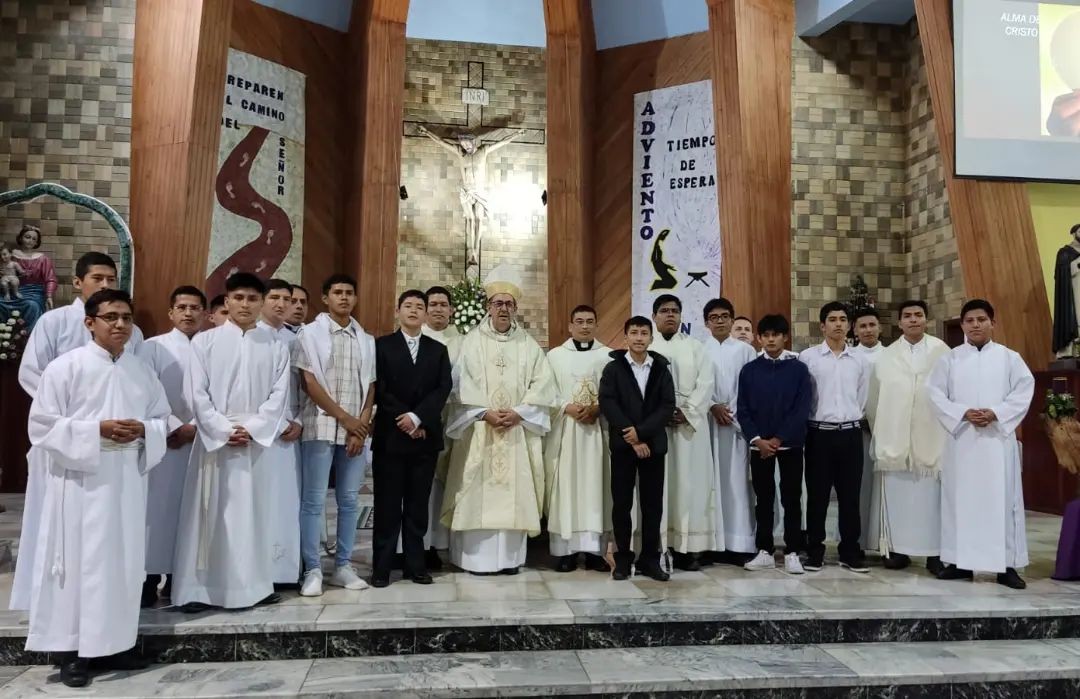Society of St. Peter the Apostle
Jeanne Bigard
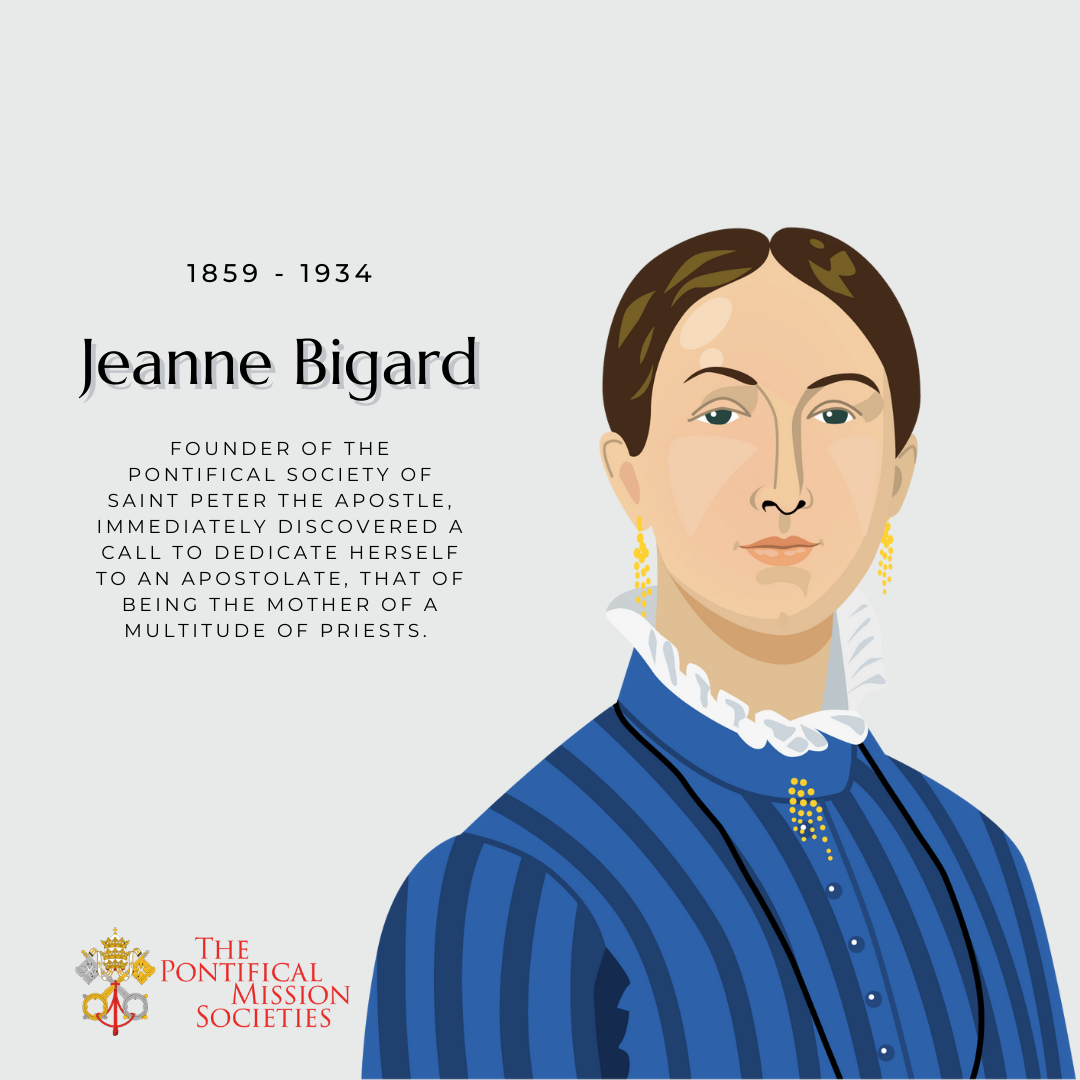
At the end of the 19th century, the French missionary Bishop of Nagasaki, Japan wrote to Jeanne Bigard and her mother Stephanie. He shared the news that the 50 young men were preparing for the priesthood in his care and wrote about the obstacles and difficulties he was enduring in providing for them and trying to accommodate the growing number of young men applying for admission to the seminary.
Jeanne and Stephanie began gathering funds to support those seminarians. In 1889, they established the Society of St. Peter the Apostle in Caen, France to support mission vocations, both priestly and religious. In the first year of its foundation, the Society aided approximately 2,700 seminarians. Within five years of sending their first donation to Japan, the Bigard women and their supporters were sending funds to seminaries in China, India, Korea, Sri Lanka, and Vietnam.
The Society supports the training of young men and women in their own country and culture to serve their people as religious sisters, brothers, catechists, or priests. Many men and women in these communities feel called to join religious life or become a priest but lack the material resources to complete their studies.
Today, more than 30,000 seminarians in some 400 seminaries, mostly in Africa and Asia, receive an annual subsidy of $750 per student to pay for room, board, and educational fees. In addition, close to 10,000 men and women religious novices receive financial assistance from the Society.
Society of St. Peter the Apostle Summer Appeal
Did you know that when you give to The Society of St. Peter the Apostle you directly support seminarians, women religious, and lay catechists in the rapidly growing Catholic Church in Africa and Asia?
The Society trains young men and women in their own country and culture to serve their people as religious sisters, brothers, catechists, or priests.
Many men and women in these communities feel called to join the religious life or become a priest to serve the Church but lack the material resources to complete their studies.
Consider this call to Christ’s mission by spiritually and materially accompanying those studying in seminaries, novitiates, and formation houses in mission lands.
You can write a check to The Society of St. Peter the Apostle and send it to:
The Roman Catholic Archdiocese of Washington
The Society of St. Peter the Apostle
P.O. Box 223394
Chantilly, VA 20153
Pastor and Parish Resources
- Pastor and Parish Toolkit
- Bulletin Announcements (English | Spanish)
- Parish Announcements (English | Spanish)
A Story from the Society of St. Peter the Apostle: Santa María la Mayor Missionary Seminary in Quito, Ecuador
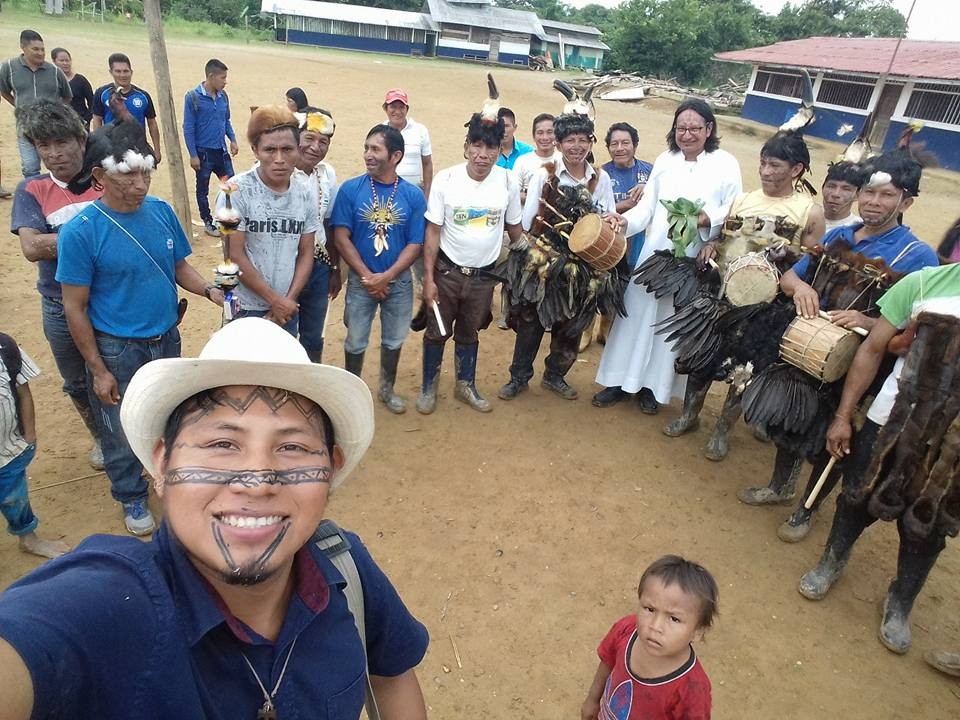 Santa María la Mayor Missionary Seminary trains the future priests of the Apostolic Vicariates of Puyo, Aguarico, Sucumbíos, Esmeralda, Méndez and Napo, from the territories of the Ecuadorian Amazon, thus building a Church with a synodal Amazonian face. It was inaugurated and blessed on November 29, 1996 and is located in the city of Quito.
Santa María la Mayor Missionary Seminary trains the future priests of the Apostolic Vicariates of Puyo, Aguarico, Sucumbíos, Esmeralda, Méndez and Napo, from the territories of the Ecuadorian Amazon, thus building a Church with a synodal Amazonian face. It was inaugurated and blessed on November 29, 1996 and is located in the city of Quito.
In the mission territories and in the founding work of the local Church, it is not always easy to dedicate time and personnel to vocation ministry, since generally all the energies of the missionaries are channeled towards areas of evangelization that are usually presented as more urgent. Discovering, accompanying, and welcoming the vocations of young people has become one of the pastoral priorities in our Apostolic Vicariates; as well as sensitizing local communities about the need for priests and workers consecrated to evangelization.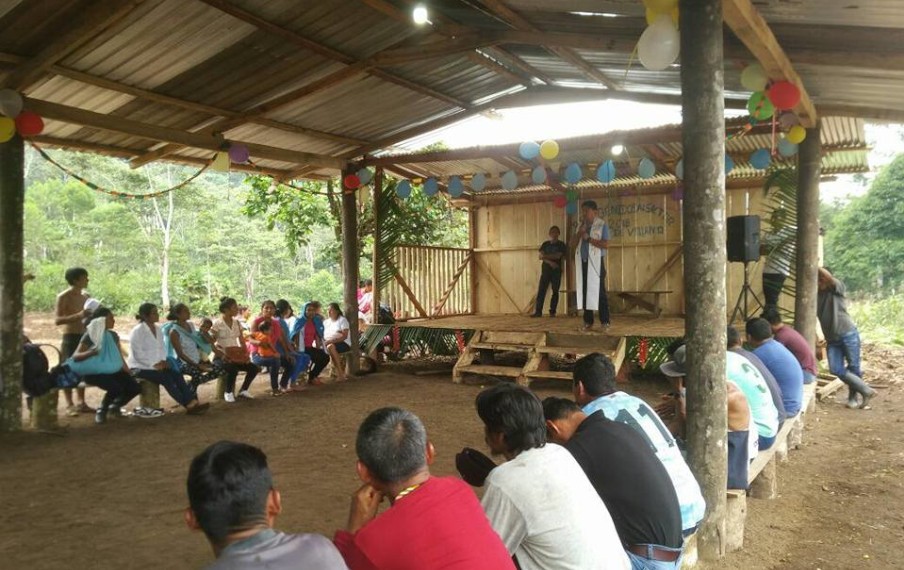
It is necessary to train seminarians in an environment where their communities and culture are represented and they are in close relationship with the missionary Church to which they belong. The missionary dimension that defines the seminarians of Santa María la Mayor Missionary Seminary is promoted in their ecclesiastical studies. The future priests of the Vicariates of Puyo, Aguarico, and Sucumbíos will serve the local indigenous and peasant communities and Church.
Seminarians study philosophy and theology courses at the Pontificia Universidad Católica de Ecuador (PUCE). Seminarians enter the mission environment by experiencing life in the parishes in urban, rural, and indigenous areas of the Vicariates and help with workshops, talks, retreats, and sporting events. Experienced priests provide the seminarians with spiritual accompaniment and share in fraternal living.
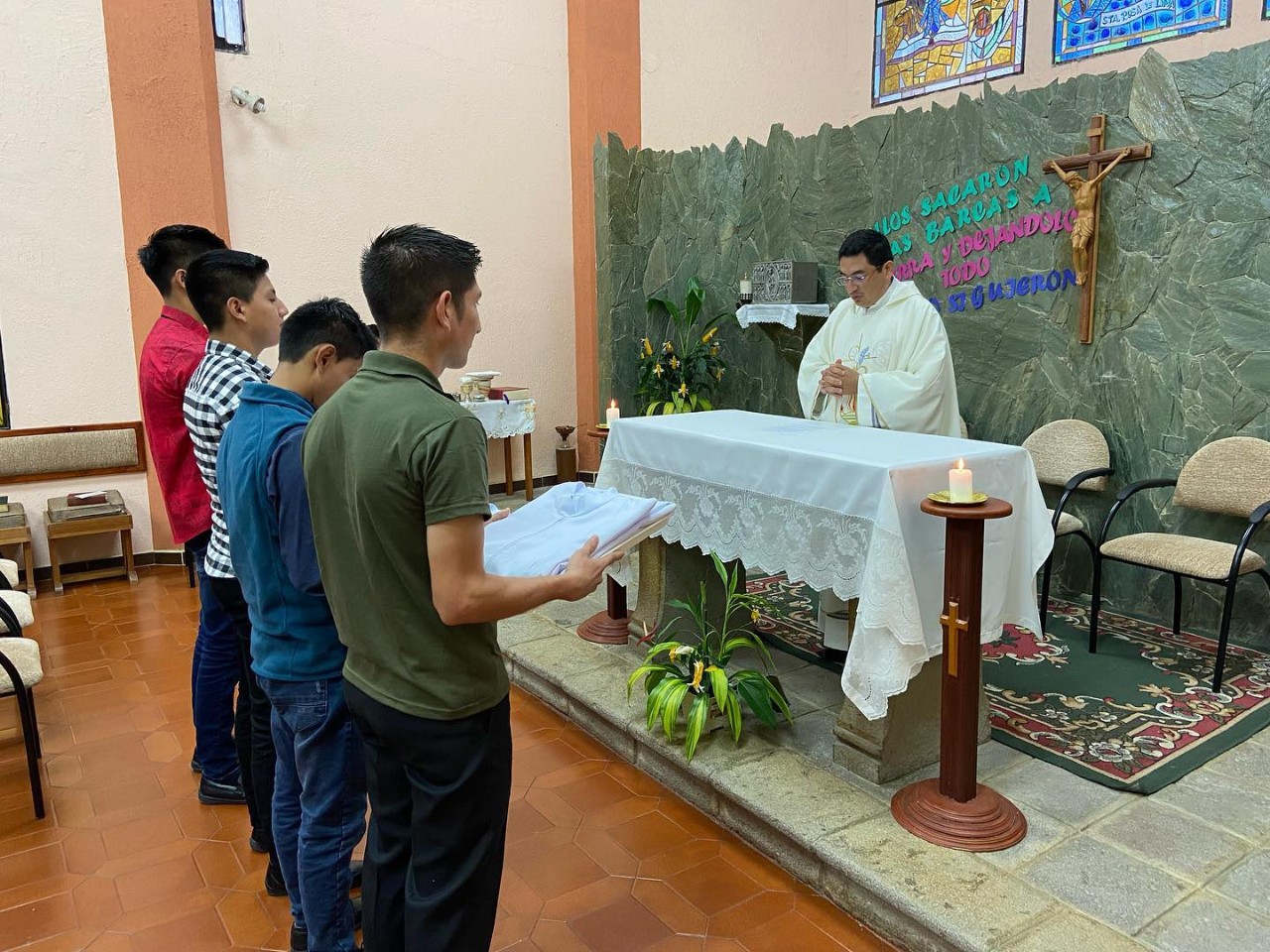 The Santa María la Mayor Missionary Seminary celebrated its 25th anniversary in 2021. With the continued support of the Society of St. Peter the Apostle, the seminary will continue to form priests according to the heart of Jesus in a total spirit of fraternity and synodality.
The Santa María la Mayor Missionary Seminary celebrated its 25th anniversary in 2021. With the continued support of the Society of St. Peter the Apostle, the seminary will continue to form priests according to the heart of Jesus in a total spirit of fraternity and synodality.
(Story adapted from the Pontifical Mission Societies International Secretariats: https://www.ppoomm.va/en/i-progetti/tutti-i-progetti/2023/february-28-2023.html)
Crónicas Misioneras (Spanish)
Mission Profile
Fr. Luis Montes, IVE
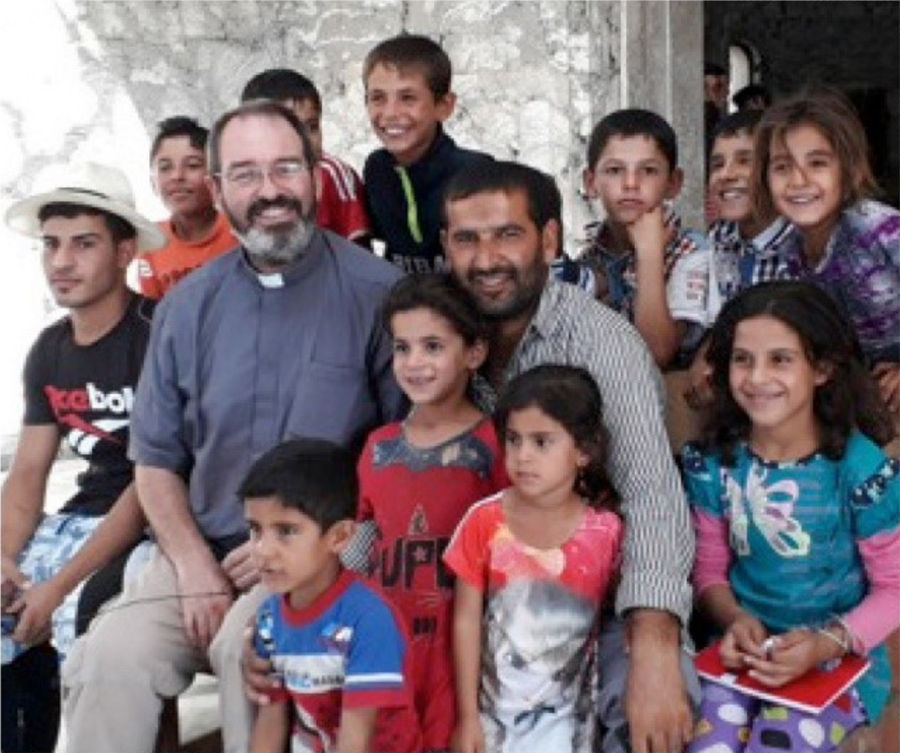
Fr. Luis Montes, IVE, was born in a small town in the province of Buenos Aires, Argentina, the sixth of seven brothers. Three are priests in the Institute of the Incarnate Word (IVE).
“My brother Jose is a priest in Ukraine. My brother Enrique is in Egypt. I am in Iraq.”
Within months after his ordination as a priest, Fr. Luis was sent to a town outside of Bethlehem to help found a monastery there.
“It is thought that this was the place where King Solomon wrote the Song of Songs,” he says. “It was a beautiful valley full of water, full of beautiful trees,” – a providential place to fall in love with the people of the Middle East.
Father Luis has also served in Jordan and Egypt, but the people of Iraq hold a special place in his heart. After the 2003 invasion and war in Iraq, the number of Iraqi Christians went from 1.5 million to about 200,000.
“The country was suffering more or less 20 terrorist attacks every day in Baghdad,” he says. “We’re speaking about thousands of martyrs, hundreds of thousands of refugees. It was not uncommon that terrorists would enter into Christian houses during the night and kill everyone in the family, from the elders to the babies.”
While many Christians died or fled, those who remain in Baghdad today continue to risk everything for Christ.
“In our parish, we don’t have the freedom to do whatever we want so we do everything inside, no processions outside. The parishioners have to be very careful.”
Yet even in the midst of their own struggles, Fr. Luis and his parishioners are helping Syrian Catholic and Orthodox families who have come to Baghdad seeking refuge.
“This makes a special relationship between these families and our church. We are visiting them in the refugee camp. We are consoling them, listening to their problems, trying to find help for them.”
Speaking about his experience, Fr. Luis says, “…We see how God gives strength to the weakest. These Christians, they are giving us a great lesson about how it’s worth it to serve Jesus Christ. How it is worth it to die because of him, how life is short. And we have to use the little time we have to be saints.”
For more information, contact Maeve Gilheney-Gallagher, Global Solidarity Coordinator.




